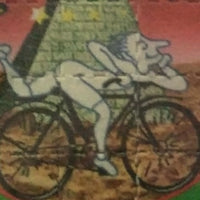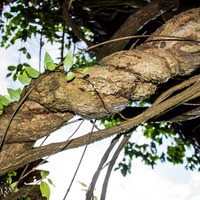Psychedelics are en vogue. It seems like studies on the clinical value of psilocybin mushrooms, MDMA, LSD, and even cannabis regularly pump through the veins of the internet. It’s thrilling because people who otherwise write-off these substances as dangerous, life-ruining drugs are now confronted with data proving their efficacy as treatments for mental health conditions. Conveniently, many of the psychological issues these medicines improve are the ones currently plaguing the collective: depression, anxiety, Post Traumatic Stress Disorder (PTSD) and addiction, among others.
The surge of recent studies has laid the foundation for a reform movement and an overarching psychedelic renaissance—one that’s offering a revolutionary lens through which to examine, approach, and possibly manage mental health. But, before taking a tab and speeding down rainbow road, know there’s more to psychedelic healing than tripping your nips off. If you want to get the most out of these medicines, one must learn to trip responsibly—and it all starts with your “set and setting.”
The Power of Set and Setting
In 1964, legendary psychonaut and psychedelic researcher Timothy Leary coined the phrase “set and setting” in his book, The Psychedelic Experience: A Manual Based on the Tibetan Book of the Dead. Simply, a “set” is one’s mindset, intentions, mood, and expectations heading into a trip, while “setting” constitutes the physical environment and people you’re with during the experience. These internal and external factors dictate how a trip goes. So, if you’re looking to have a deep, healing experience you better prep your set and setting.
The concept of set and setting is central to the clinical trials currently taking place. Researchers studying psilocybin’s effect on various forms of depression have specifically curated aesthetic session rooms for subjects to trip in. The Multidisciplinary Association for Psychedelic Studies (MAPS) has done the same thing with its clinical trials studying the effects of MDMA on PTSD. These rooms are said to have warm lighting, nice plants, relaxing music, and a couch or bed for people to lie on while they trip. Professional trip sitters—often equipped with a degree in therapy—are also there to help in case things get dark for the journeyer.
Talk-therapy occurs before and after the medicine session to respectively establish goals, integrate new perspectives and work through lingering emotions. While the psilocybin clinical studies are still under way (and likely on pause due to COVID-19), research looking at psilocybin’s impact on depression in lab rats suggests mushrooms can provide substantial, enduring relief. MAPS’ MDMA study is nearing completion, however. After three sessions of MDMA-assisted therapy, many subjects no longer met the qualifications of PTSD.
Home Healing
While the studies demonstrate the power of psychedelics in a clinical setting, they also prove the viability of set and setting as a concept. In fact, this research confirms that preparing your mindset and environment pre-trip is essential to ensure a pleasant—let alone healing—experience.
The best way to prepare your “set” before a trip is to establish an intention. Why are you seeking a psychedelic experience? Is there anything you want to let go of, move through or understand? Take a few minutes to check in with yourself and write down—as bullet notes, even—your thoughts.
To prep your “setting,” create a long playlist of music that makes you feel good. Make sure you have water and snacks in the house. Pull out extra pillows and blankets. Queue up other activities in case you want to do something, like draw, watch a nature documentary or pull tarot. You want to be as comfortable as possible and have everything you might want readily available.
After your journey, write down how you felt before, during and after the experience. Did you cry? Did you realize something about yourself or someone else? Did you learn something from communing with your plants? How does your anxiety or depression feel post-trip? You get the idea.
Keep in mind it’s okay to feel nervous heading into a trip. That alone doesn’t mean your mindset is off kilter. You may, however, want to reconsider a journey if you’ve recently experienced trauma, have underlying contraindications such as schizophrenia or bipolar disorder, or feel uncharacteristically depressed. Psychedelics amplify how you feel and your current experience. So, if you’re not feeling comfortable, you’re in a bad place, or you’re not ready to confront the things that bring you pain, suffering, and heartache, you might need to postpone your journey. These medicines will always be here, though, so there’s no rush. In fact, they often find you when the time is right.
The timing of the psychedelic renaissance feels divine. The mental health of the collective is atrocious right now, and it’s only getting worse. But, the fact that psychedelics are revolutionizing the worlds of psychology and neuroscience—as a mental health crisis looms on the horizon—means there’s hope. May these medicines safely guide us down the rainbow road of healing.
Written By \ Mary Carreon




